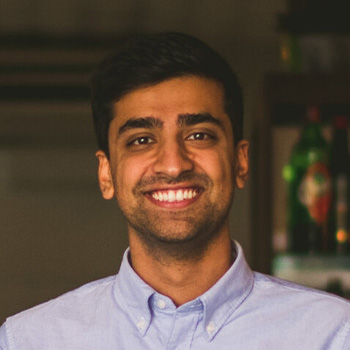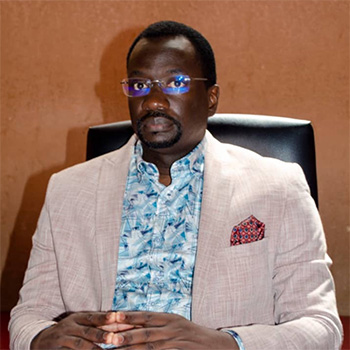Elections Series: Senegal – Legislative

Abhit Bhandari

Maurice Soudieck Dione
Author: Ayuko Picot
On July 31st, 2022, Senegal will hold legislative elections for its 165-seat National Assembly. These elections are set to take place six months after the local elections, held in January 2022, in which the opposition won seats in five major cities. The success of opposition parties occurred amidst increasing political instability including the largest protests in decades in Senegal, long considered one of West Africa’s most stable democracies. We brought together two scholars with expertise in the country to discuss with us this critical moment for Senegal:
Abhit Bhandari is an Assistant Professor of Political Science at Temple University. His research interests include political economy of development, business and politics, and inequality. In Senegal, he has conducted large-scale field experiments, original surveys and survey experiments, and qualitative fieldwork.
Maurice Soudieck Dione is Professor of Political Science at Gaston Berger University in Saint-Louis, Senegal. He received his PhD in Political Science from the Institute of Political Studies in Bordeaux. Dione’s research interests include the democratization processes of African political systems including the institutionalization of rules, norms and values for the stabilization of African societies.
In January 2022, Senegal held its municipal and regional elections. President Macky Sall’s ruling party conceded defeats in stronghold areas including Dakar. What were the outcomes from the local elections? How are they likely to impact the upcoming legislative elections?
Abhit Bhandari (AB): The January local elections demonstrated that support for the ruling coalition in Senegal has eroded, a signal that the upcoming legislative elections could similarly pose a blow to the Sall regime. A key outcome of the local elections was that Ousmane Sonko, the de facto leader of Senegal’s opposition, was elected mayor of Ziguinchor, the largest city in Senegal’s Casamance area. However, due to what some in Senegalese civil society regard as interference by the ruling party, Sonko was not permitted to stand for election in the upcoming legislative elections due to the invalidation of the Yewwi Askan Wi (YAW) primary list (their list of alternates was permitted). This decision led to mass protests led by YAW supporters in Senegal in June 2022.
Maurice Soudieck Dione (MSD): As Bhandari says, the local elections marked a decisive step in the Senegalese democratic game, in the sense that the opposition, in particular the YAW coalition, won significant votes. In the municipalities where the YAW competed, the YAW coalition obtained 717,001 votes or 24.70%, against 1,224,365 or 42.17% of the votes for Benno Bokk Yaakaar (BBY), the ruling coalition. The YAW won the following departments: Keur Massar, Rufisque, Mbacké, Bignona, Oussouye, and Ziguinchor; it won the following cities: Dakar, Rufisque, Guédiawaye, and Thiès. These local elections marked a certain change in the balance of political power in favor of the opposition, in particular for the YAW, which seems to be driven by popular support for change.
Professor Bhandari, you recently conducted a survey experiment on programmatic vs. clientelistic campaigning during the local elections. Can you tell us a bit more about your experiment? How would you describe the electoral landscape in Senegal leading up to the legislative elections?
AB: In joint work with Jessica Gottlieb, we implemented a project during the January 2022 local elections in Senegal with the goal of understanding what can make programmatic campaign appeals based on impersonal, universalistic policy – as opposed to clientelistic appeals that target goods to select groups – more appealing to business owners. We administered a survey with an embedded experiment to firm owners in both the formal and informal sectors in Dakar, with the expectation that firm formalization – or explaining the benefits of formalization – may increase the appeal of programmatic campaigns. Analysis of results are ongoing, with a full paper expected this fall. Initial descriptive results show that informal sector firm owners are less likely to vote for Sonko, understood by most to be the more programmatic candidate.
What are the main issues that Senegalese voters are most concerned about?
AB: There has been recent frustration with trade disruptions and increases in the price of basic foods. There has also been growing resentment over France’s political and economic ties to Senegal. Overall, however, the issues voters in Senegal care about have not changed. These include better access to healthcare, education, and economic opportunity (see my joint paper with Horacio Larreguy and John Marshall). People’s faith in the ruling party to achieve these goals has decidedly declined in recent years. Though the start of the Sall regime brought significant optimism, much of that has faded, particularly in Dakar. The waves of protests that were met with violence last year, combined with what is perceived as increasingly coordinated suppression of political opponents, have made Senegal’s democracy itself a salient issue for many voters.
Two opposition coalition groups, Yewwi Askan Wi and Wallu Senegal recently announced that they would unite in order to defeat the ruling party, the Alliance for the Republic (APR). What parties are running for the legislative election, and who is expected to do well and why?
AB: There are hundreds of Senegalese political parties, which typically come together to form coalitions to stand election. Deputies are elected via a mixed system in which coalitions have a proportionally-elected national-level list and a winner-take-all department-level list. For this election, there are eight competing coalitions. Sall’s party, APR, is part of the BBY coalition, and YAW (the coalition of Ousmane Sonko) and Wallu Senegal (associated with former Senegal president Abdoulaye Wade) are the most formidable opposition coalitions. Their alliance—bringing together wide swaths of Senegalese voters—poses a considerable threat to BBY. Their aim is to form a coalition government in the National Assembly to curb the influence of Sall and potentially prevent a controversial third term in the Sall presidency. While the opposition leaders appear optimistic about their chances, strongholds of ruling party support in rural areas make the legislative elections far from a foregone conclusion.
MSD: Amongst the eight competing coalitions, the ruling coalition, BBY, has the advantage for the upcoming legislative elections as there are no dissident lists (candidates not supported by the ruling coalition) within it, as was the case for the local elections. However, the recent increase in the cost of everyday consumer goods is not favorable to the ruling coalition. The opposition coalitions, YAW and Wallu Senegal, have joined forces to maximize their chances of victory at the departmental level. There are 46 departments in Senegal and eight constituencies in the diaspora that elect 112 deputies by first-past-the-post, where the winner even with a single vote difference wins all the seats. The remaining 53 seats are filled by multi-member proportional voting on the basis of the total votes of the coalitions of parties added up at the national level. So, this political alliance between YAW and Wallu Senegal could lead to significant results during the upcoming elections.
The decision by the Senegalese government to exclude certain opposition members from the upcoming election has sparked multiple demonstrations. The arrest of opposition leader, Ousman Sonko, in March 2021 led to violent protests. Are these signs of democratic backsliding in Senegal, often considered a beacon of democracy in the region? Should we be concerned about electoral violence?
MSD: Leading up to the violent protests in March 2021, there were signs of popular discontent with the confinement measures implemented by the government to fight the COVID-19 pandemic. Because the overwhelming majority of the Senegalese population is active in the informal sector, many are unable to support a prolonged cessation of activities, and the economic consequences of the confinement measures were disastrous.
The events of March 2021 have deeply shaken the country’s institutions. It is one of the most serious political crises in the history of Senegal with a heavy toll of 14 dead, many injured, and a lot of material damage.The protests reflected people’s demands for respect for the rules of democratic competition and the rule of law, as well as people’s suspicions of the use of the justice system to liquidate adversaries, as in the politico-judicial cases that led to the imprisonment of Karim Wade and Khalifa Ababacar Sall. In addition, the accusations of rape by the masseuse Adji Sarr against Ousmane Sonko were considered by the opposition as a plot to put Sonko in prison and exclude him from the game.
More recently, the Constitutional Council rejected the national list submitted by the YAW coalition due to a candidate appearing on both the main and alternates list. To protest against this decision, the YAW coalition organized a demonstration on June 17, 2022, but the government banned the demonstration. Clashes ensued between demonstrators and security forces, resulting in three deaths and numerous injuries. Some leaders of the YAW coalition were arrested before the scheduled time of the demonstration and in places far from the planned place of the rally. Those arrested included Déthié Fall and Mame Diarra Fam, deputies in the National Assembly, along with the mayor of Guédiawaye, Ahmet Aïdara. The opposition postponed another demonstration scheduled for June 29th. Future electoral violence can be controlled and even avoided, if the rules of the democratic game and the rule of law are respected.
There are rumors that Macky Sall might seek a third term in office. How will the outcome of this legislative election impact the upcoming presidential election in 2024 and the stability of Senegalese democracy in the future?
AB: The predicted losses in the upcoming legislative elections lead some experts in Senegal to believe this will make a third term more unlikely for Sall. However, given that Sall’s coalition still has a sizable base of support—faring well in most rural areas in the recent local elections–these frictions may not subside after the legislative elections. Combined with growing popular opposition, there is a worry that an announcement of a third term would lead to widespread political demonstrations and turmoil. The backlash may be less than what Abdoulaye Wade faced in 2012 when he sought his own controversial third term. Unlike Wade, who was seen as concentrating his dynastic power in order to eventually hand off control to his son, Sall does not face the same type of criticism, which could make public resistance less intense by comparison.
MSD: What is at stake is the reallocation of political forces. These elections will reveal the new balance of power between the current ruling coalition and opposition. The opposition must obtain a majority in the National Assembly to impose cohabitation, where the president and prime minister would be from opposing parties, in order to put an end to the increasingly likely prospect of President Sall seeking a third term, which is in violation of the Constitution. In 2012, the question of President Abdoulaye Wade’s third term caused tension, violence, and around ten deaths. The legal and political controversies were linked to the fact that President Wade had been elected on the basis of the 1963 Constitution before the adoption of the new constitution, which introduced a two-term limit in 2001. However, President Sall was elected in 2012 on the basis of the new Constitution. In addition, the 2016 constitutional referendum reinforced the term limit by inserting an eternity clause prohibiting any future amendments to the two-term limit provision. Ultimately, if President Sall persists in running for a third term that violates the Constitution, the country risks experiencing an uncertain future with tensions and violence.